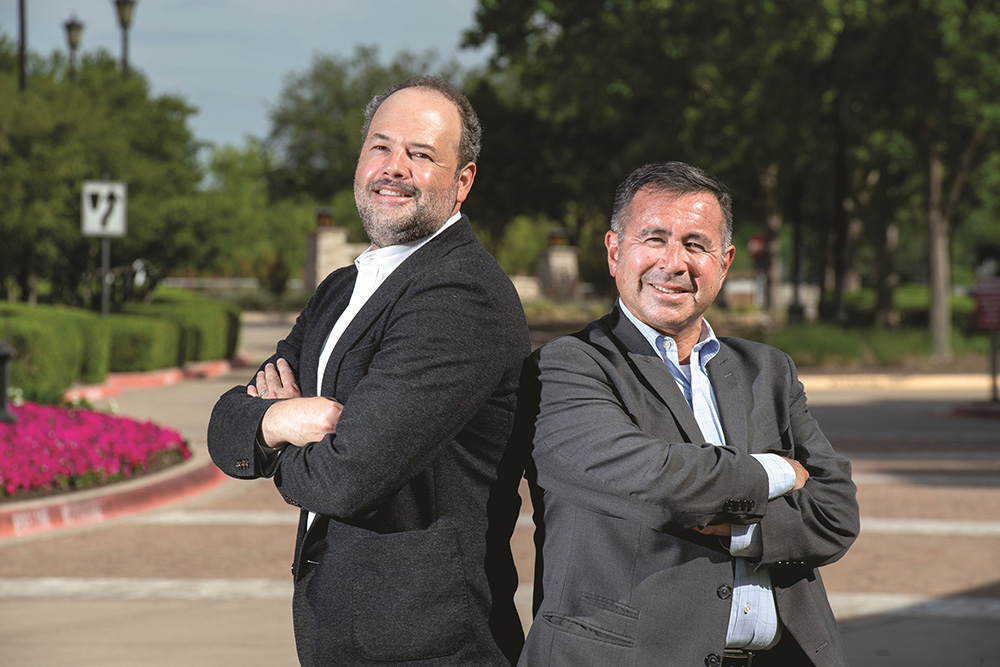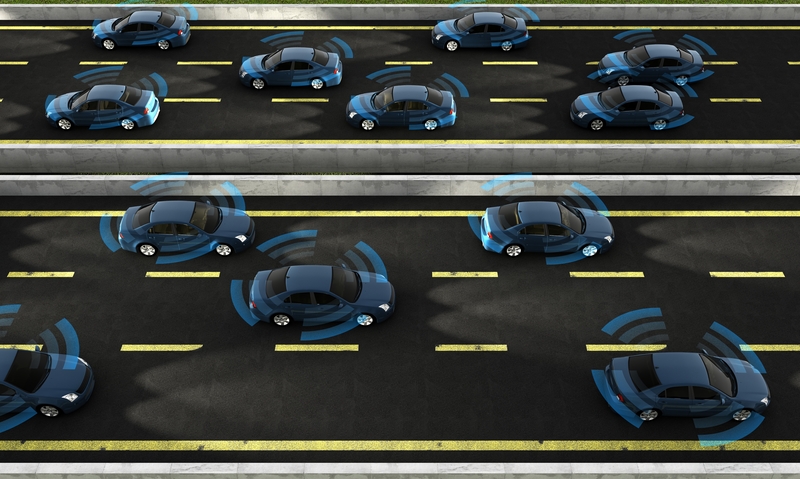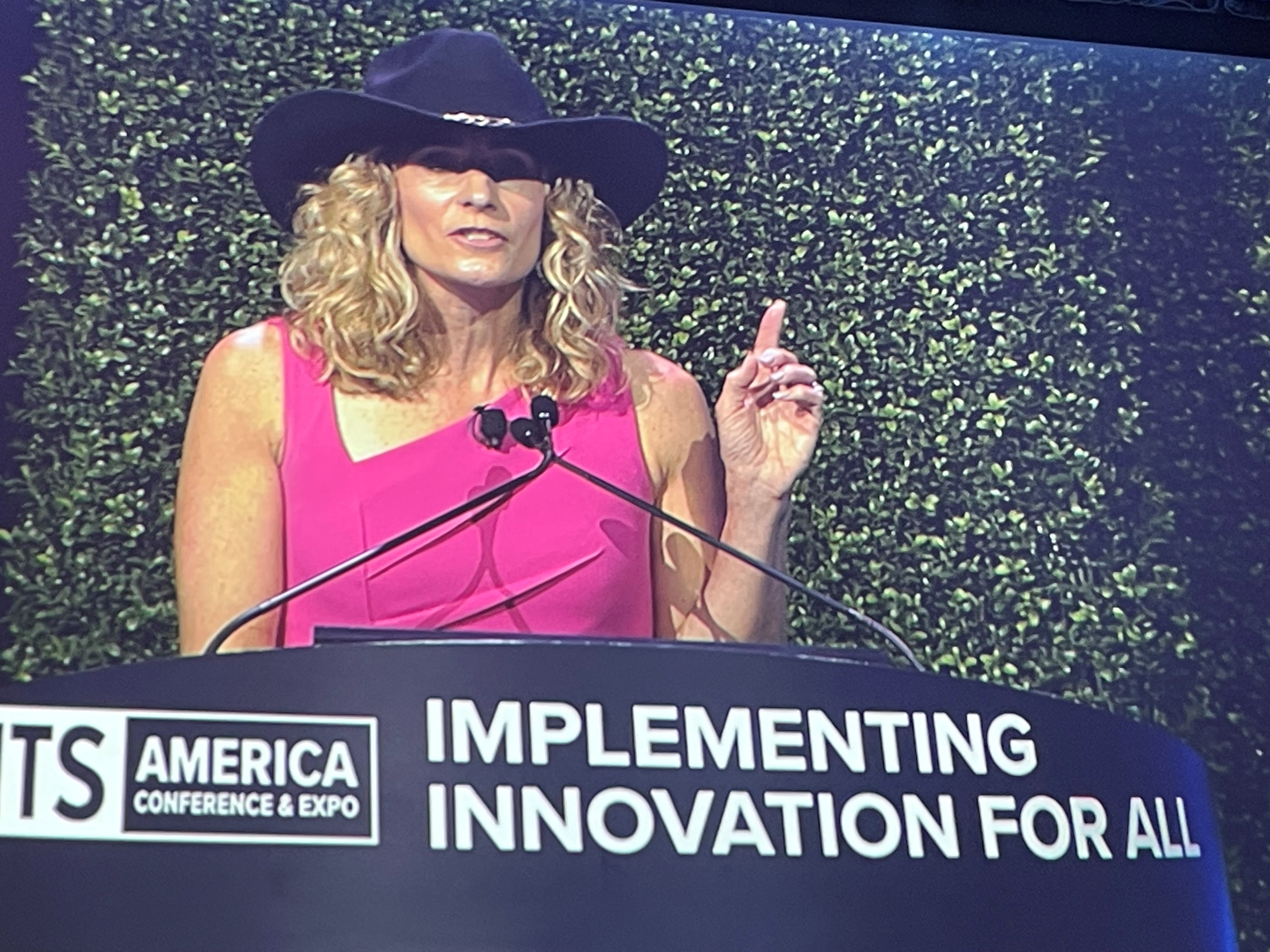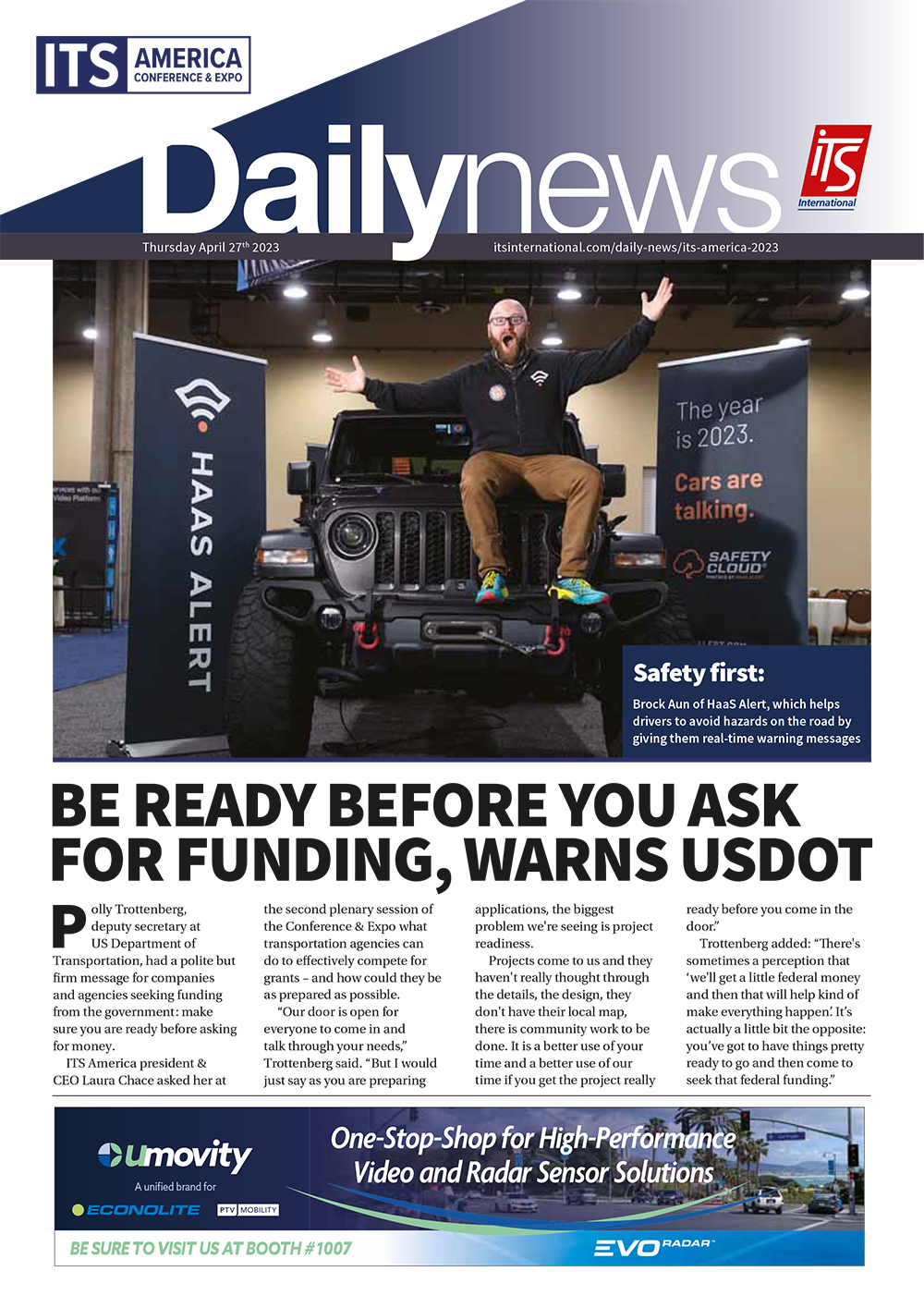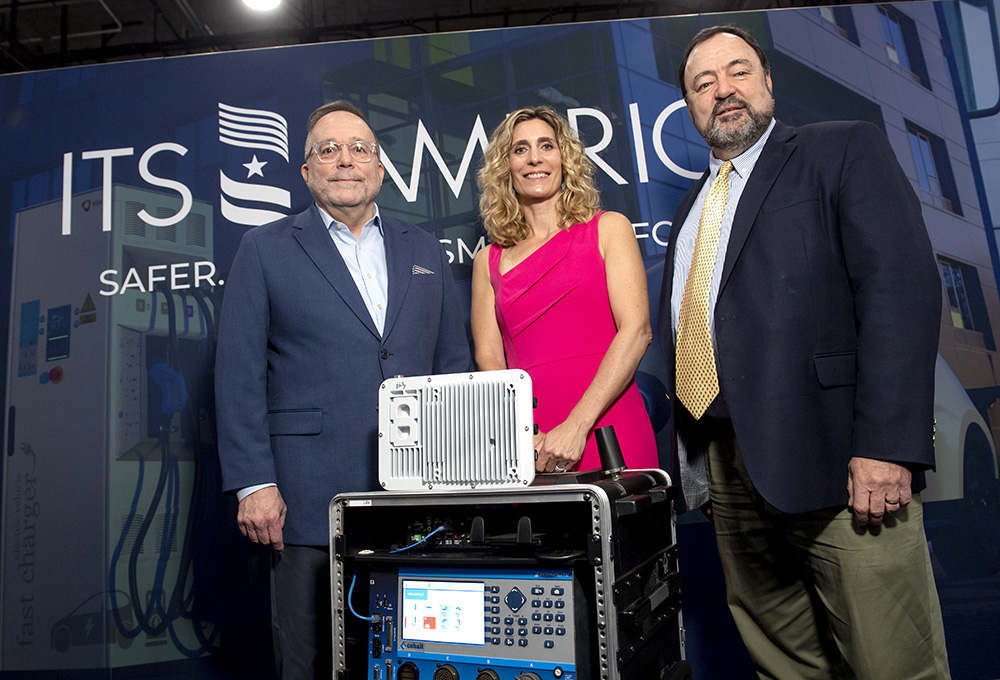
Various car manufacturers, US departments of transportation and ITS tech companies signed the request, and now it will be easier for them to deploy C-V2X, which allows vehicles to communicate with one another and with road infrastructure.
ITS America has long called for its widespread introduction as a way of reducing the 40,000 or so deaths each year on US roads. “All of our good technology is only going to be useful if we can deploy it,” says ITS America president and CEO Laura Chace (pictured). The FCC decision “gives us new momentum”.
Brad Stertz (above, left), Audi government affairs director, commented: “It’s been a journey of decades.” The FCC waiver “gives us a great deal of flexibility – we’re eager to get started,” he added.
Blaine Leonard (above, right), transportation technology engineer at Utah DOT, says: “We’ve been waiting for 20 years: this is a beginning – not the beginning – but a beginning. We need to move forward together to deploy this tech.”
There has been a ‘chicken-and-egg’ aspect to C-V2X deployment, with vehicle manufacturers and infrastructure operators both waiting for each other to some extent. Jim Misener, Qualcomm global V2X ecosystem lead, says: “Think about it as a virtuous circle. Both sides have to complete their part of the circle. But this [decision] allows this to happen.”
The Infrastructure Investment and Jobs Act has also made significant money available for agencies to invest in innovation. “There is a historic amount of funding potentially available for this too. So it comes at a very good juncture for the FCC - not only to be a champion, but also to precipitate change themselves,” Misener adds.
Bryan Mulligan, president at Applied Information, says, "The industry has said C-V2X is ready to deploy. Now it is time to deploy."
Andres Castrillon, director, government affairs at Qualcomm, told Daily News, “It marks a real turning point in the industry’s effort to utilise connected vehicle technology to reverse the rising fatalities on our roadways. We've got a really serious public health crisis on our roadways. Technology can help. This is the first step in doing so. This is a really important milestone on the road towards broad scale deployment, coast to coast.”







